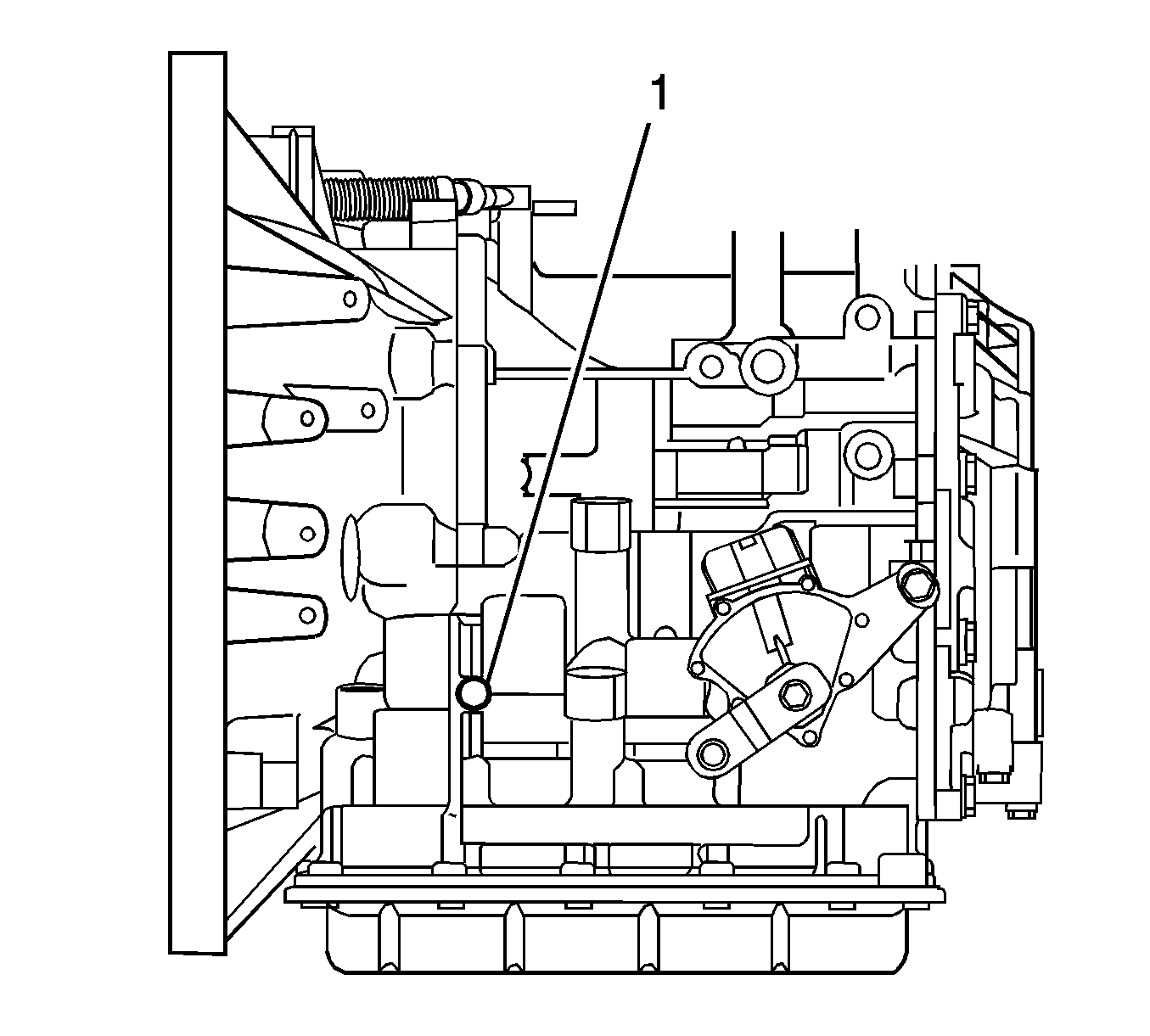Tools Required
The hydraulic test can inspect the working condition inside the automatic transmission (A/T) by measuring line pressure in drive (D)/reverse (R) range and idle/stall condition.

- Wedge the 4 wheels and apply the parking brake fully. Lock the vehicle in place.
- Install
J 21867
and
J-21867-50
to test the hole (1) for line pressure.
Important: Do not continuously run longer than 5 seconds. Extreme increasing of oil temperature may occur.
- Fully press on the brake pedal with left foot, shift into drive (D) and reverse (R) range and measure the line pressure idle/stall condition.
Specifications
| • | The engine idle line pressure in drive (D) is 0.14-0.37 mPa (20.30-53.70 psi). |
| • | The engine idle line pressure in reverse (R) is 0.59-0.68 mPa (85.60-98.62 psi). |
| • | The engine stall line pressure in drive (D) is 1.10-1.23 mPa (159.54-178.40 psi). |
| • | The engine stall line pressure in reverse (R) is 1.58-1.83 mPa (229.16-265.41 psi). |
Make sure to keep interval for more than 1 minute between stall tests.
Make sure to check that there is no oil leak after installing
J 21867
and
J-21867-50
.
Result of Hydraulic Test
| Cause of Failure
|
Higher than standards in both drive (D) and reverse (R)
|
| • | Pressure control solenoid (PCS) failure |
| • | Primary regulator valve failure |
|
Lower than standards in both drive (D) and reverse (R)
|
| • | Primary regulator valve failure |
| • | Oil strainer failure, clogging |
| • | Oil leak for each range circuit |
|
Lower than standards only in drive (D)
|
| • | Drive (D) hydraulic circuit failure |
| • | Forward clutch (C1) failure |
|
Lower than standards only in reverse (R)
|
| • | Reverse (R) hydraulic circuit failure |
| • | Reverse clutch (C3) failure |
| • | 1st and reverse brake (B3) failure |
|

